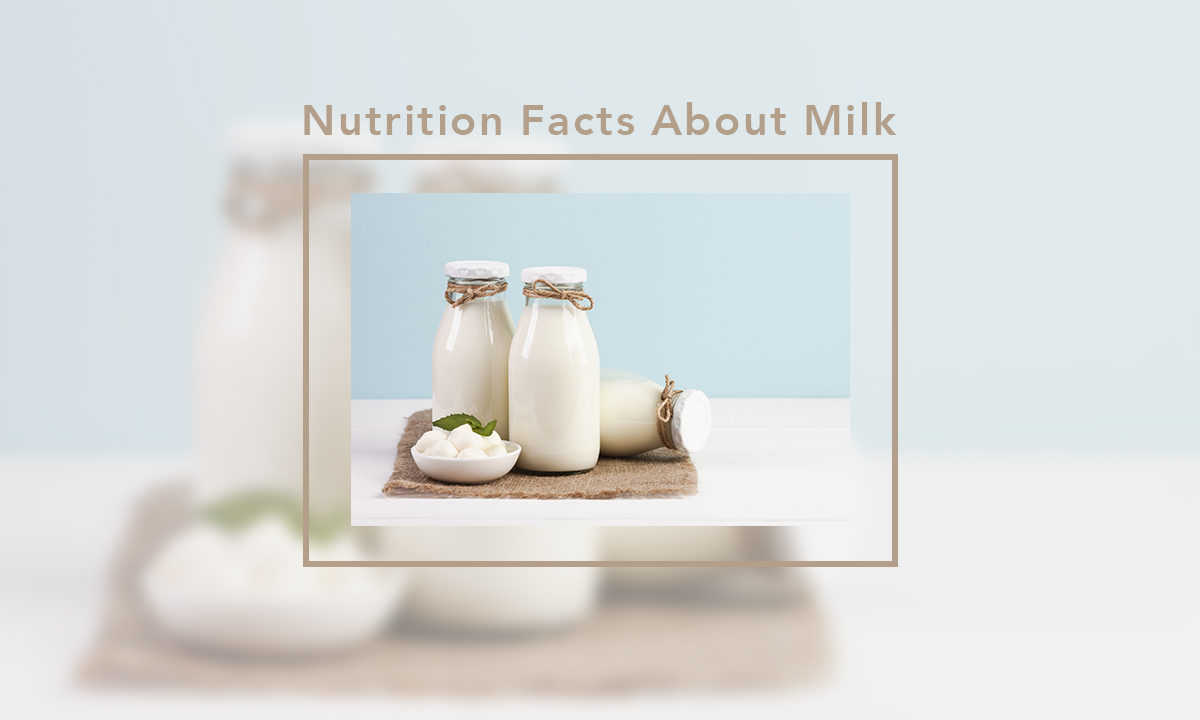What do you know about milk
Milk is a natural food source for mammals. Animals, including humans, produce milk to feed their young until they are ready for solid food.
As such, milk contains valuable nutrients that help support a growing body, including calcium and protein.
Research about milk is conflicting, however, with different studies claiming milk is either good or bad for the body.
Due to rising concerns about health, lactose intolerance, and animal welfare, plant-based milk, and dairy alternatives are gaining popularity.
Milk Nutrition Facts You Need to Know:
Milk Has 8 Grams of High-Quality Protein:
One 8-ounce glass of milk provides eight grams of natural, high-quality protein. Protein is important for many reasons — it helps to build lean muscle and keep bones strong.
Many experts now recommend getting 25 to 30 grams of protein at each meal. The timing of protein is important as well, especially at breakfast, a meal that’s often heavier in carbs and lighter on protein. Incorporating protein at breakfast
helps you feel full and satisfied so you won’t feel hungry by mid-morning. By pairing your morning meal with a glass of milk, it can help you reach that amount of protein before noon.
Milk Is the Top Source of Calcium in Americans’ Diets:
Dairy milk is an excellent source of calcium, which helps build and maintain strong bones and teeth. It would take 7 cups of raw broccoli (a typical serving is 1 cup) to get as much calcium as you get in just one 8-ounce glass of milk. Each serving contains 300 mg of calcium, which is 25 percent of your daily recommended amount of calcium.
Milk is Also the Top Source of Potassium, a Nutrient Missing in Many Americans’ Diets:
Just how much potassium is found in milk? Each 8-ounce glass of milk has as much potassium as a small banana. Potassium helps regulate the balance of fluids in your body and plays a critical role in maintaining a healthy blood pressure.
Nearly Half of Americans Get Their Vitamin D From Milk:
Vitamin D is known as the “sunshine vitamin,” because direct sunlight on the skin triggers the body’s ability to make vitamin D.
According to the Dietary Guidelines for Americans, people should aim to get most of the nutrients in their diet from food, and since vitamin D is naturally present in very few foods, this advice can be difficult for this nutrient. An 8-ounce glass of milk provides approximately 15 percent of your daily recommended amount of vitamin D, which works in concert with calcium to build and maintain strong bones. This helps to protect children from rickets and older adults from osteoporosis.
Milk Is an Excellent Source of Vitamin B12:
Vitamin B12: This vitamin helps build red blood cells and helps maintain the central nervous system. One serving of milk or milk products serves 50 percent of your daily recommended amount of vitamin B12.
Milk Is a Good Source of Vitamin A:
Vitamin A: This vitamin helps to maintain a healthy immune system.Vitamin A also helps keep skin healthy. Each serving of milk is a good source of vitamin A and provides 15 percent of your daily recommended amount.
Milk Also Is an Excellent Source of Riboflavin:
This nutrient in milk (also known as vitamin B2) helps to convert your food into energy. Drink one 8-ounce glass of milk, and you consume 35 percent of your recommended amount of riboflavin.
A Serving of Milk Contains as Much Phosphorus as 1 Cup of Kidney Beans:
Phosphorus works with calcium and vitamin D to help maintain bone health and a serving of milk contains 20 percent of your daily recommended amount of phosphorus
Milk Contains 10% Daily Value Niacin :
Niacin This nutrient in milk, also known as B3, works in concert with riboflavin and vitamin B12 to help convert food into energy. An 8-ounce glass of milk contains 10 percent of your recommended daily amount of niacin. When you know the facts about the nutrients in milk, there’s an easy way to add more nutrition at mealtimes: Pour a glass of milk.
To see the Juice production line from cubii, and more details, click on the following link




